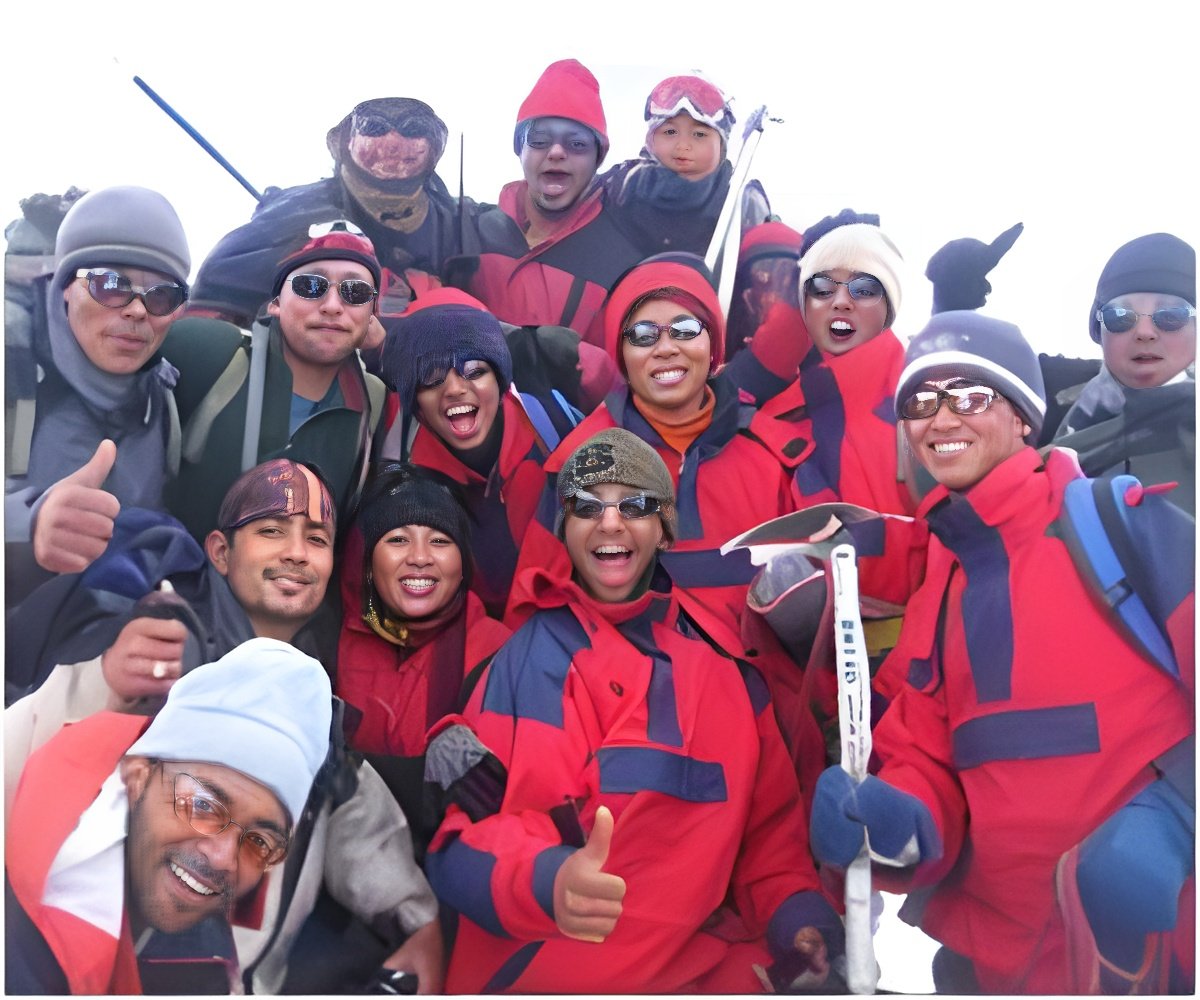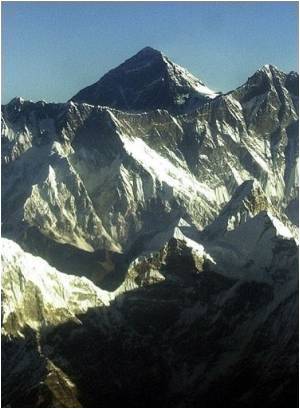Physically and emotionally speaking mountaineering is recommended as it is a great sport that challenges a person to greater heights. An seasoned mountaineer shares his experience with Medindia.

Medindia mets with Jerry P. a professional mountaineer who goes on regular expeditions conquering like an emperor one summit after another.
Q. Let’s begin with the simplest, why choose mountaineering?
A. Generally, people prefer mountaineering to other sports because in pure alpine style climbs you don’t come across dirty politics, nepotism etc. You are there because you are good enough. One isn't seeking approval or applause from an audience. Once the target is achieved, you move on to the next target or summit. Apart from that, the mountains, especially the Himalayas are both tranquil and threatening at the same time especially on technical climbs. There is an element of risk which is always exciting.
On a more personal front, I prefer this sport because I desire to do many technical climbs. Maybe, the K2 in a couple of years. More importantly mountaineering also relieves me after long hours spent studying the scriptures. So instead of wasting my time amid the humdrum the town has to offer I get a ‘clean’ break in the mountains. I can safely return to my shell at the end of it all.
Q. What is an ideal mountaineer prepared for?
Q. How do you assemble a team?
Q. All of you on an expedition are trained professionals. What goes into the mountaineering training programme?
A. Most mountain schools have a curriculum. Generally it is a fast track approach to mountaineering. Most Indian Mountain Schools have a 26 to 30 day programme for Basic Mountaineering and an equally long programme for imparting Advanced Mountaineering Skills. The training at Himalayan Mountaineering Institute and Nehru Institute of Mountaineering is supposed to be par excellence. But 60 days of training at these schools can only teach you skills and techniques required during an expedition. Fitness, grit, determination, character and common sense are self imbibed. If you don’t have these then the skills and techniques are useless. That said, time spent at the school is definitely profitable to learn the skills and meet accomplished mountain instructors and learn from their experiences.
Q. How early do you decide to go on an expedition? Is there a standard time frame to prepare health wise or is it more like, anytime is mountaineering time, so your back pack is always ready?
A. There are climbing seasons in the Himalayas, Alps, Rockies, the Andes and other mountains. Generally one starts planning a few months say 6 to 7 months in advance because you need the appropriate permissions to book and plan for a peak. There is definitely a conscious effort to work on one’s fitness. Personally I am always working out to stay in shape (In season or out of it). The training starts to get rigorous 3 months prior to the expedition till about a week or so is left. Then I just let the body recover from the wear and hope and pray for the best.
Q. What’s in a mountaineer’s back pack?
A. I usually climb in the Himalayas. I will reply with the Himalayas in mind. The rucksack should be a good rucksack which can withstand the rigours of the climate and terrain. A really good down filled sleeping bag, down jacket, wind/water proof jacket and pants (made of gore-tex), snow shoes, woollens, sunglasses, balaclava, mask, gloves, hiking shoes, energy bars and other snacks for instant energy, ice axe, harness, rope, carabiners, descenders, ascenders, sling etc. The list can be really exhaustive.
Q. Tell us the ideal diet before climbing and while climbing.
A. Generally, if you are a sincere climber then in all probability you are working out a lot. This means, your protein intake has to be a lot more than an average person. One must always keep track of one’s fluid intake. You don’t want your body to lose fluids and vital salts without being properly replenished.
During climbs you eat what you can. In all my climbs I have been fortunate enough to have had exceptional cooks who have always ensured that we get delicious hot meals even till the advanced base camp. Beyond the advanced camp you have to survive on chocolates, glucose and instant noodles.
Personally I prefer meat, especially well cooked mutton, fruits and fruit juices Generally, you lose your appetite as you go higher. But you have to force yourself to eat, and even if you are not drinking water, make sure fluid intake is optimal with Juice, soup, tea etc depending on the availability.
Q. I am told breathing is difficult as a person climbs higher, how does the altitude affect your breathing?
A. Breathlessness is one of the signs of acute mountain sickness. A more serious condition called HAPO or High Altitude Pulmonary Oedema caused by retention of fluids in the lungs could be fatal. This is generally seen above 10,000 ft. above sea level. Unfortunately there is nothing much one can do. The only way is to descend. Which means either you have to cancel the expedition or send a part of the team to escort the ailing member to a safe altitude.
Q. Personally what does climbing mountain do to you? What’s in it for you?
A. Probably, a sense of accomplishment in life. Like I said earlier, it is a very clean sport. There is no glitz or glory really. Your feet are firmly planted on mother earth more often than not -. It is you with and against Mother Nature. You do this because you want to and there are no ulterior motives really. At the end of it all, nobody knows that a certain so and so has done something worthwhile. More on the lighter side, if you remember I was even trying to dodge this interview.
Q. Initially when learning to drive rules and regulations are part of conscious thinking and then it becomes a habit. Is it the same way climbing mountains? Once you are used to it, what do you focus on when climbing?
A. It does become a habit. But you are always working out, practicing the skills, the systems or something or the other. But it becomes a challenge to do it at 20,000 ft at sub-zero temperatures when the brain slows down and ceases to recall things easily. So more than conscious thinking, things have to be like second nature or reflex action to a person.
Q. Has anyone ever got ‘extremely emotional’ when they reach or en route to reaching the summit?
Response: The word is ‘irritable’. The response is YES. You just have to be a better person and ignore it, because you know it is not the person that is intentionally doing it. It’s just that the altitude has got the best of him. When you climb down, you just laugh about it over a drink. In my case a soft drink. I am a teetotaller.
Q. ‘Reaching mountain tops’ is a clichéd phrase referring to the ultimate success. So how are you a different person on mountain top as opposed to who you are on land?
A. I take this as being addressed to me personally. I am the same. When I am on top, I thank God. Let it sink in a bit. Get back to base. Get back home and get back to business. It is thrilling though.
Q. Have women ever accompanied you on expeditions?
A. I have come across women with exceptional mountain skills. But I haven’t had a lady on my team as yet.
Speaking to Jerry P, one is convinced that mountaineering is an alluring sport since it inculcates noble values apart from fitness. It is also a form of healthy escapism, far removed from some of the chaotic pursuits we humans indulge in. Physically and emotionally speaking too, mountaineering is recommended as it challenges a person to greater heights, quite literally.
Source-Medindia









